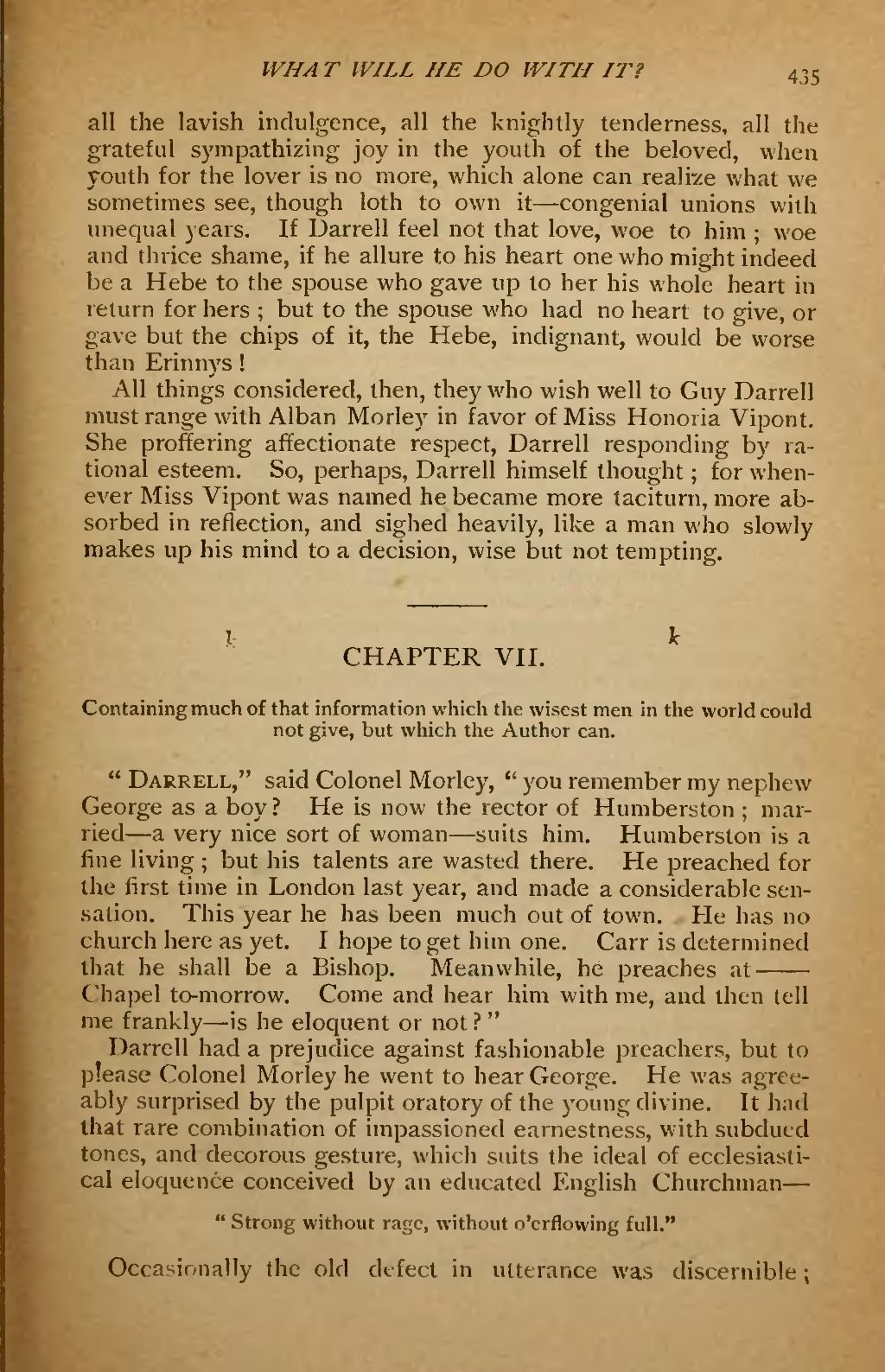all the lavish indulgence, all the knightly tenderness, all the grateful sympathizing joy in the youth of the beloved, when youth for the lover is no more, which alone can realize what we sometimes see, though loth to own it—congenial unions with unequal years. If Darrell feel not that love, woe to him; woe and thrice shame, if he allure to his heart one who might indeed be a Hebe to the spouse who gave up to her his whole heart in return for hers; but to the spouse who had no heart to give, or gave but the chips of it, the Hebe, indignant, would be worse than Erinnys!
All things considered, then, they who wish well to Guy Darrell must range with Alban Morley in favor of Miss Honoria Vipont. She proffering affectionate respect, Darrell responding by rational esteem. So, perhaps, Darrell himself thought; for whenever Miss Vipont was named he became more taciturn, more absorbed in reflection, and sighed heavily, like a man who slowly makes up his mind to a decision, wise but not tempting.
CHAPTER VII.
Containing much of that information which the wisest men in the world could not give, but which the Author can.
"Darrell," said Colonel Morley, "you remember my nephew George as a boy? He is now the rector of Humberston; married—a very nice sort of woman—suits him. Humberston is a fine living; but his talents are wasted there. He preached for the first time in London last year, and made a considerable sensation. This year he has been much out of town. He has no church here as yet. I hope to get him one. Carr is determined that he shall be a Bishop. Meanwhile, he preaches at Chapel to-morrow. Come and hear him with me, and then tell me frankly—is he eloquent or not?"
Darrell had a prejudice against fashionable preachers, but to please Colonel Morley he went to hear George. He was agreeably surprised by the pulpit oratory of the young divine. It had that rare combination of impassioned earnestness, with subdued tones, and decorous gesture, which suits the ideal of ecclesiastical eloquence conceived by an educated English Churchman—
"Strong without rage, without o'crflowing full."
Occasionally the old defect in utterance was discernible;
